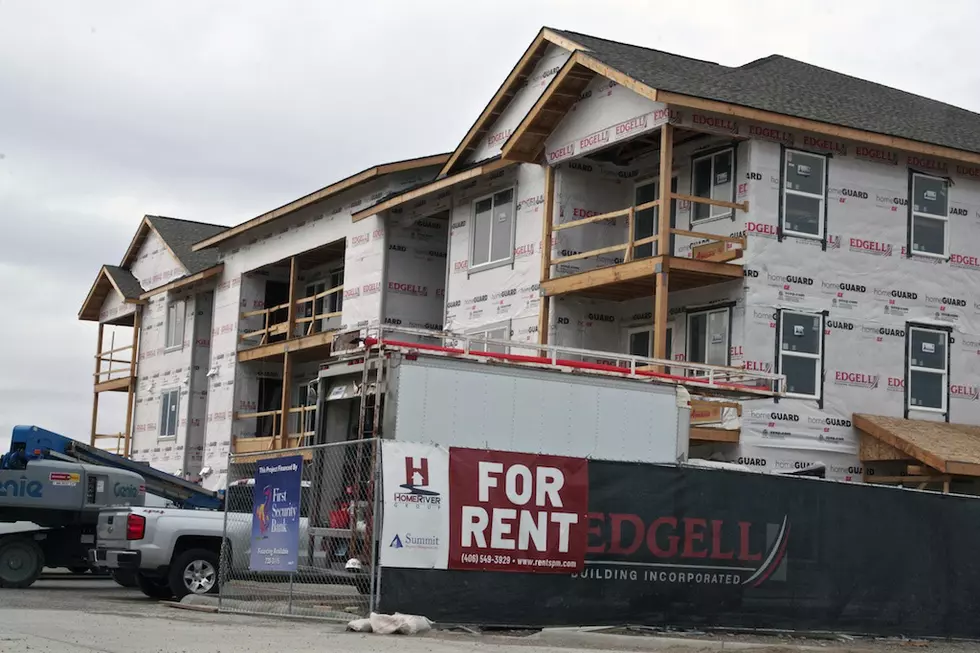
Task Force: Streamline permitting, prioritize infill to address Montana housing crisis
Nicole Girten
(Daily Montanan) Gov. Greg Gianforte’s Housing Task Force published a preliminary draft of its second set of recommendations aimed at regulatory changes for state and local governments, and heard public comment during a hearing this week.
This round of recommendations looked at streamlining permitting processes, studying and prioritizing infill development to utilize existing infrastructure and investing in workforce development and in new construction methods. There were 18 total recommendations from four subtask groups.
Gallatin County Chief Planning Officer Sean O’Callaghan said during Wednesday night’s hearing that workforce development should look beyond construction trades to professions that also support development, including surveyors, architects and engineers. He said that local governments are strapped for cash and need tools to finance infrastructure improvements.
“It’s a struggle for us to find funding to maintain the infrastructure we already have. There’s very little funding available to expand or improve that infrastructure,” he said. “There’s certainly limited appetite from landowners for us to impose the cost of infrastructure to serve development through property taxes or through voter approved bonds, so we need more tools.”
Other commenters said that the draft recommendations favored developers over local communities or spoke to specific changes happening in their communities that worried them.
Flathead Valley resident Jennifer Tipton said she was worried the state wasn’t growing responsibly and spoke to concerns about plans for a new sewage facility near her family’s property.
“You can’t drive anywhere without passing a huge apartment complex being built or you know, high rise condos, giant subdivisions, businesses, it’s everywhere, and all that extra waste has to go somewhere, I understand that,” she said.
Great Falls City Commissioner and task force member Joe McKenney spoke to some of these concerns in an interview with the Daily Montanan on Thursday, saying in some cases it comes down to fear of change, but that government needs to be careful of unanticipated consequences.
“If Lewis and Clark came through Great Falls today, they’d be very disappointed, it’s not what they remember,” he said with a chuckle. “Change is going to happen, right, and we just have to do it in the right way and have participation from the folks the change is affecting.”
One commenter made predictions about the future of the real estate market with the potential for a recession on the horizon, saying that the new units being built in areas like Bozeman would be left empty and short-term rentals would get sold, leading to a housing surplus.
Speaking from experience as a real estate agent, and not on behalf of the task force, McKenney said that the market is still recovering from the impact of the 2008 housing crisis, now compounded with the impact of COVID-19 and low interest rates.
“The folks that think there’s a bubble and we’re going to overbuild, we’re not going to overbuild in the short term,” he said. “It’s not fake demand, it’s real demand.”
McKenney was the co-leader on the Regulatory and Permitting subtask force group and highlighted some of the recommendations. These included using funds from the Coal Trust Multifamily Loan program, passed during the 2019 legislative session to help low-income families with housing, toward increasing density in urban areas to increase opportunities for subsidized housing in areas with water and sewer infrastructure already in place.
Another idea surrounded professional occupational licensing, with McKenney noting that out-of-state workers’ licenses don’t automatically transfer when they move to Montana, and it takes time to get reciprocal licensing.
“Great Falls is a military town. Spouses may be licensed in another state, suddenly come here and they can’t use their license,” he said.
He said he recognized that “not all licenses are created equal” and said that if someone couldn’t be licensed right away, that they could still work with appropriate supervision. He said details surrounding what states would be accepted for reciprocal licensing would have to be determined by the Montana Department of Commerce.
The first set of recommendations were submitted to the Governor in October and were aimed at changes that could be made by the legislature to address the housing crisis.
The task force will be accepting written comments from the public on the second set of recommendations through Dec. 13 before the task force’s final meeting on Dec. 14 to be able to incorporate public comment before submitting the final draft the following day.
